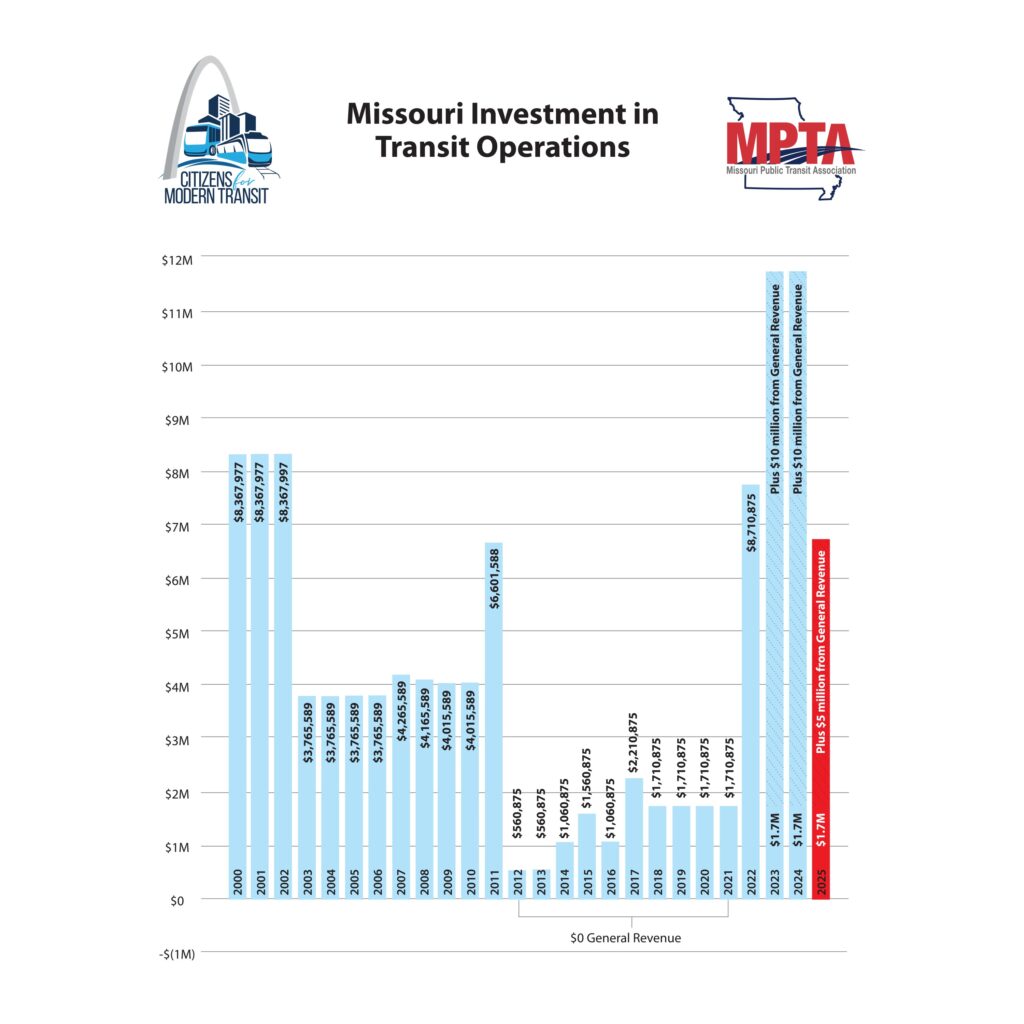Contact Your Legislators Today
Gov. Kehoe’s decision to reduce State Transit Assistance funding by 42 percent on June 30 is a significant setback for public transit. Per capita transit spending has dropped from $1.89 to $1.08, putting Missouri back in its long-standing position near the bottom in a national ranking of state support.
All 30 transit providers across Missouri rely on state investment not only for day-to-day operations and capital improvements, but also to secure federal transit funds that require a non-federal or local match. The reduction in funding from $11.7 million to $6.7 million will result in fewer vehicle replacements, the inability to secure federal funds, reduced service hours, staffing cuts, and millions of lost rides. This is particularly problematic for rural communities and vulnerable populations who depend on transit for essential services.
The $5 million cut in General Revenue has a very real impact on the services being delivered in every district:
- OATS Transit’s loss of $900,000 in state funding will impact the number of vehicles they can purchase. They are currently operating a fleet with many vehicles designated by the FTA beyond their useful life.
- The KCATA $1 million cut to revenue will mean potentially more cuts in service including frequency and millions of lost rides; very problematic in light of the upcoming World Cup coming to Kansas City.
- Scott County Transit System provides approximately 16,512 one-way trips in rural Missouri, totaling 117,178 miles traveled, with a significant portion of these trips serving seniors, people with disabilities and low-income individuals who rely on this service to access essential destinations. Due to the cuts, Scott County will be reducing trips.
- Metro Transit in St. Louis delivers almost 20 million rides annually. The state investment is used as match to draw additional federal dollars to the state of Missouri. The loss of almost $2 million in state investment will directly impact the return from federal dollars.
- State investment comprises more than 10 percent of City of Excelsior Springs Transportation Department’s operating budget – a significant loss to their operations if reduced. The budget cut will result in a negative adjustment in hours of operation and staffing.
Transit delivers 37 million rides each year and yields an overall economic impact of $4.05 billion annually in Missouri. It matters.
In Missouri’s veto session, both members of the House of Representatives and the Senate vote on whether to override the governor’s vetoes. A two-thirds majority vote in both chambers is required to override a veto. Missourians are urged to contact their state representatives and senators and advocate for the restoration of transit funding.
